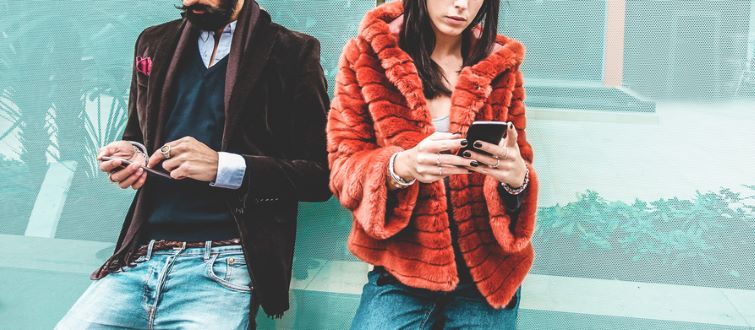
5 Industry Trends to Watch in 2021 for those Earning an MSc in Fashion & Luxury Business
Much has changed in the past few years, with the pandemic making a strong impact on the luxury industry. Not only did this impact sales but also operations and customer expectations. With the world increasingly leaning towards digitalization and remote work infrastructures, the luxury industry—like many others—is undergoing some significant changes.
These changes are propelling the luxury industry forward, steering away from consumerism with the help of “conscientious consumers,” who care about the environmental and social impact of their shopping activities. This shift towards what is now being referred to as, “conscientious luxury,” is accompanied by other growing trends in the industry. Here’s a closer look for those interested in discovering more!
1. Sustainability and the Search for Meaning in Luxury Consumption
According to McKinsey’s State of Fashion 2021 report, less is now becoming more. That’s because now, more than ever, consumers are becoming more aware of social and environmental impacts of the industry—seeking positive change throughout the global value chain. Sustainability is a key aspect of this, motivating fashion companies to reduce complexity and inventory levels as well as adopt demand-focused approaches to all products.
In fact, a survey shows that sustainability is an important purchasing factor, with 67% of consumers focusing on the use of sustainable materials and 63% on a brand’s promotion of sustainability. Here, fashion companies that focus on these efforts can also increase their agility and accountability, considered to be important aspects that resonate with their audience.
2. Increasing Digital Presence and Adopting Omni-Channel Strategies
Since the pandemic, retail ROI has taken a strong hit. Store closures are likely to increase as brands continue to strengthen their online and digital presence. In fact, e-commerce is even expected to become the leading channel of distribution by 2025.

E-commerce and digital platforms are key channels for luxury fashion brands
Students earning their MSc Fashion and Luxury Business can also anticipate an increase in omni-channel strategies. As brands start to focus on their growing younger demographic, they’ll begin implementing new digital strategies that aim to engage and inspire their target audience. This can include digital apps, virtual customer services, as well as social shopping and live-streaming initiatives.
3. Supporting Customization across All Channels
Another rising trend in luxury fashion includes personalization, which can be used to integrate the “human touch” into online shopping experiences. As more customers go online, it becomes increasingly more important to connect with them and maintain high brand equity.
In addition to providing personalized treatment in-store, luxury fashion brands will need to offer these services through online experiences to meet customer demands. By improving and adopting new technology, customization can become a strong aspect of luxury fashion shopping across all channels in the upcoming years.
4. What Those Attending a Luxury School in Paris Should Know on Storytelling
Storytelling is at the heart of branding, making it an essential part of the luxury industry. Consumers are not just drawn to the product, but they are compelled by a meaningful message communicated effectively through luxury branding. This storytelling aspect is incredibly important, even in a post-pandemic, digitally-driven world.

Story-based branding can be more effective, resonating with target audiences
Luxury fashion brands will need to capture their identity and communicate that through various digital channels to resonate with their audience today. A stronger emphasis is now placed on authentic and conscious branding, using storytelling to communicate the feelings behind a brand. Students completing their fashion and luxury business MSc program can study brand development and business practices, learning to deal with emerging technologies in the industry to better prepare for success.
5. Shifting Focus and Efforts towards Local Customers
Due to the pandemic impacting travel, fashion companies will need to explore new revenue opportunities and focus more on local customers instead of global markets. It should be noted that this change can also impact how companies attract and serve their customers, potentially involving new regulations that influence sales at the regional level as well as on different platforms.
That said, the need for marketing in this industry remains high—particularly as luxury fashion products are specifically designed to stimulate ambition and desire. Through consistent and effective marketing, luxury fashion brands can continue engaging their niche audience.
Are you interested in attending a luxury school in Paris?
Contact Sup de Luxe for more information!
